Battlefield 2042 is a radical return to the series' roots
Back to the future.
It's being touted, naturally, as the most ambitious Battlefield yet, and perhaps the biggest generational leap the series has seen to date with dynamic 128-player matches (on new-gen and PC at least - last-gen players will have to make do with 64 players) and a near future canvas that's brimming with all sorts of exciting tech.
Really, though, what could make this Battlefield stand apart isn't so much how it's moving forwards and more about how it's going back to what DICE does best and doubling down on it. There's no single-player campaign. There will be no battle royale. What there is, at first glimpse, is all the chaos, unpredictability and unprecedented scale that's at the heart of the series' appeal, dialled up to a new degree of intensity.
The set-up is hokey, if unnervingly close to home at its foundation - climate crisis and the second great depression in 2032 leads to the rise of stateless soldiers with no allegiance, and when a global blackout takes out all satellites and cripples intelligence systems the world reverts to type and sees the United States and Russia engage in all-out war, with the no-pat soldiers taking up arms for both sides.
All of which is a po-faced excuse for some out there action that would do the Fast & Furious franchise proud; there are robot dogs, angry tesla tanks, hovercraft and wingsuits, with the destruction pushed that little bit further, the evolution of each stage across a single skirmish that bit more dramatic. In Orbital, a new map set in French Guana, there's a rocket launch you can sabotage, unleashing all sorts of havoc as it comes tumbling down onto the battlefield; in Discarded, changing water levels impact the playfield as both teams dance around a Colossus at the centre of the map; in Hourglass, a sprawling map set across a windswept Qatar, the high winds can even pick up your vehicle and toss it elsewhere.
It's that sort of breathless moment that's the series' bread and butter, and the sort of moment that should be more commonplace given how absolutely stuffed Battlefield 2042's sandbox is with new toys to play with. Perhaps the best twist in 2042's formula is how close to hand those toys now are - any player can now summon a land vehicle, opening up maps that promise to be the series' biggest yet (and also opening up some devilish new tactical options - spot a sniper camping at a certain spot and you may well elect to call in a tank to be deposited on top of them, handily squashing the offending menace).
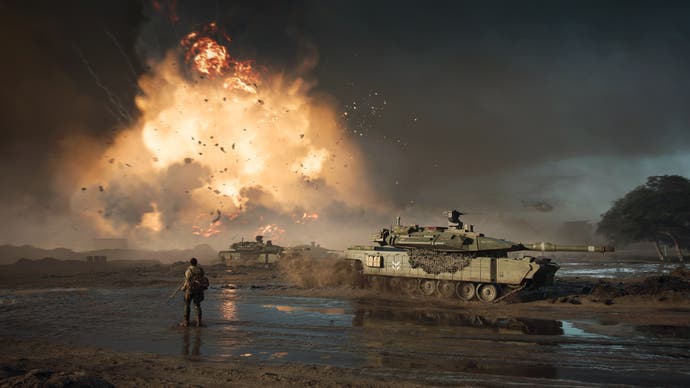
Such a tweak is part of a general opening up of Battlefield - some aspects of which will likely prove more controversial than others. Guns are no longer tied to certain classes, and what's more the granularity of weapon choice now extends out onto the field - in battle, it's possible in Battlefield 2042 to bring up a fancy HUD that allows you to swap out stock, scope or barrel as you move from the great outdoors into a more closely confined area of the map. It's a fantastic new tweak given the ever-changing nature of Battlefield's skirmishes, but it's tied in with another that I'm yet to be fully sold on.
In place of the old class system of Battlefield are specialists - or, to put it another way, hero characters, each named and each with their own special perks they bring into battle. There's Webster McKay, for example, who alongside his implausible name has a grappling hook that lets him winch up to otherwise out of reach areas. Maria Falck, meanwhile, brings a healing syrette pistol with her, while Pyotor Guskovsky comes equipped with a sentry rifle. They all slot into pre-existing classes - McKay into recon, perhaps, while Pyotor is an engineer and Maria a medic, but each with their own quirk (and that wingsuit, it's worth pointing out, is one specialist and one specialist's alone). How exactly this will play out in action remains to be seen, but design director Daniel Berlin was able to enlighten us to some of the thinking behind the change.
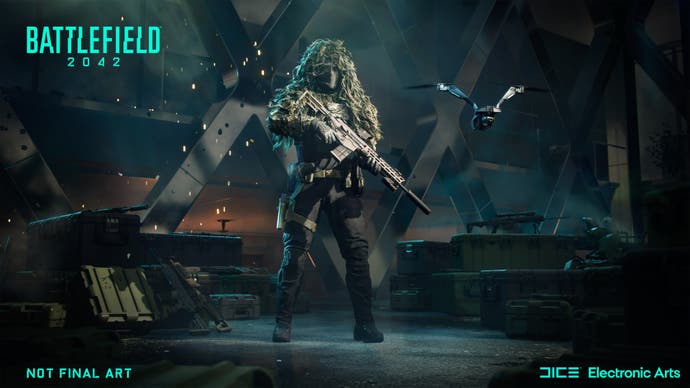
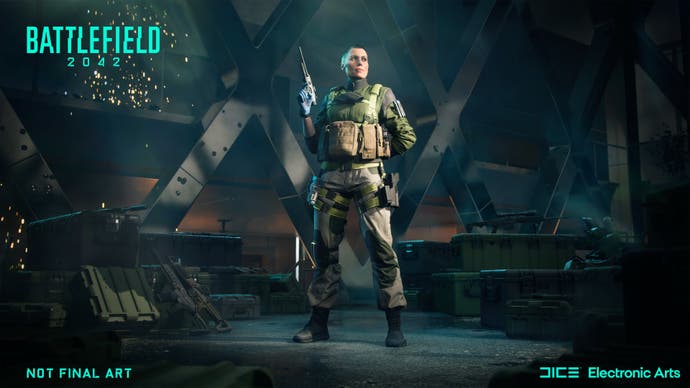
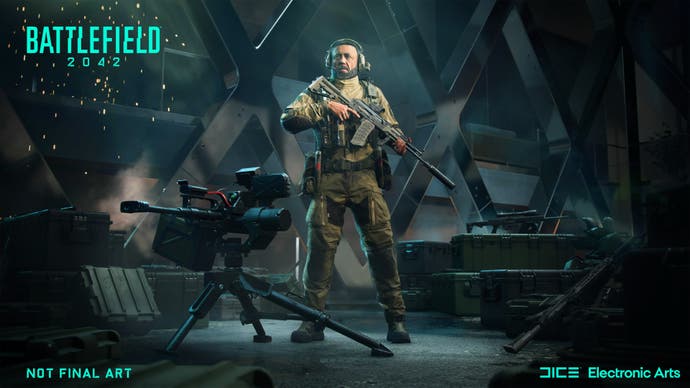
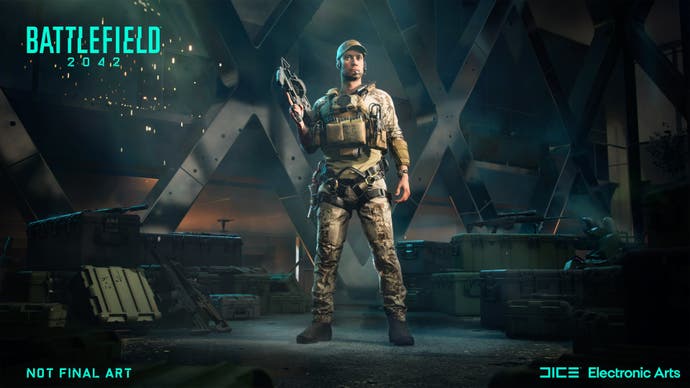
"If you look back at previous games, we've had certain behaviours that we can read through data," says Berlin. "Players chose their class based on the weapon of the class. With the introduction of the specialist we're saying classes is more of a category - and underneath each category of recon, for example, there's multiple specialists that share a gameplay style.
"So what you do now when you're playing 2042, is that you choose a gameplay role. But you can pick whatever weapon you want there. So you can play a support role that is a specialist with ranged revives, ranged healing - so a really strong medic type of specialist. But you can still say I'm in a space right now where there's a lot of vehicles. So I'm going to bring some C4 with this specialist, and I'm going to bring a rocket launcher. It's about opening up the sandbox and just giving more choice to the player."
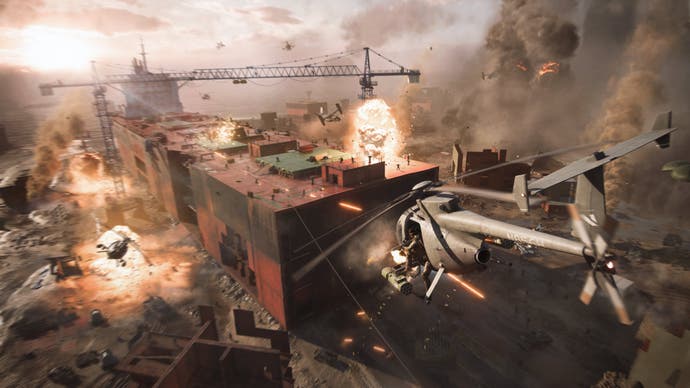
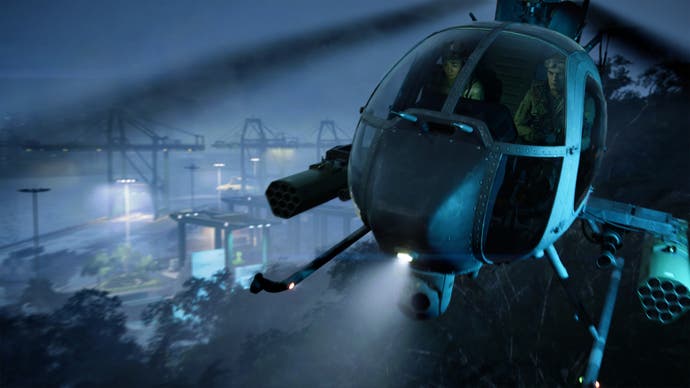
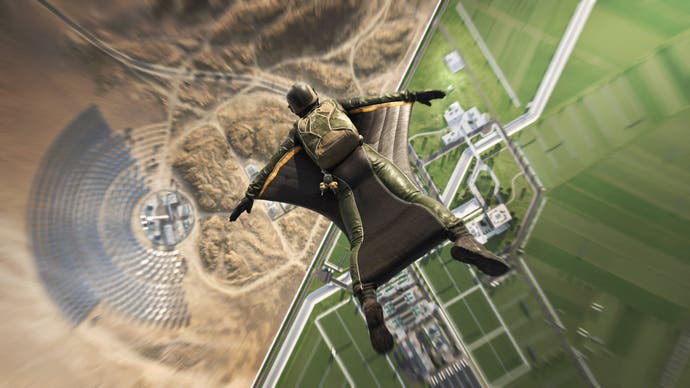
It's also, of course, about introducing new specialists via the premium battle pass that'll be part of Battlefield 2042, with four seasons and four new specialists planned across the game's first year. How exactly they pan out remains to be seen, and it's one small area of doubt in what's otherwise looking like an exceptional package for EA's series, with all the bombast of old tied into new tech and an enjoyably unhinged take on near-future technology. It feels, from what little we've seen - at present EA and DICE are only talking about traditional modes Conquest and Breakthrough, with more reveals planned in the run-up to Battlefield 2042's 22nd October release - like a Battlefield that's been made with fan's requests first and foremost in mind.
"Of course this is something we take into consideration a lot, you know, we listen to our community, this is the heart of the franchise," says Berlin. "We've been in historical settings for previous games, and we really wanted to take this game to a place where we can almost unlock the sandbox, and really push gameplay and infuse it with fun, creative ways for people to play.
"Being able to have all this cutting edge technology, it enables us to add multiple layers to the sandbox here. Combining that with the massive spaces we're building - I'm so happy that people seem to like this, because this is just one of the three experiences that is in this game. We have so much more to show as well."
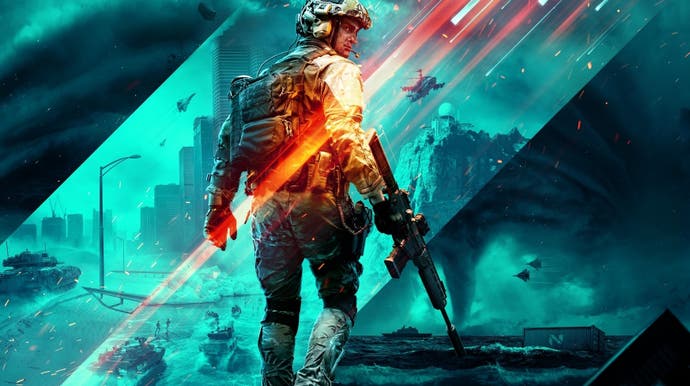



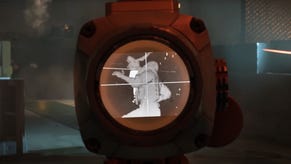

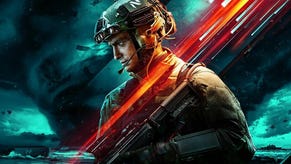
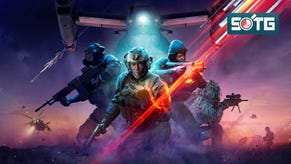

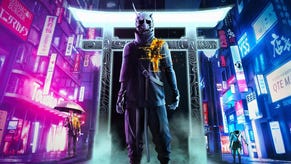
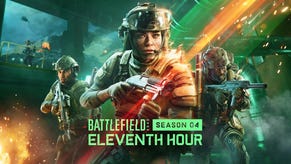



.png?width=291&height=164&fit=crop&quality=80&format=jpg&auto=webp)



